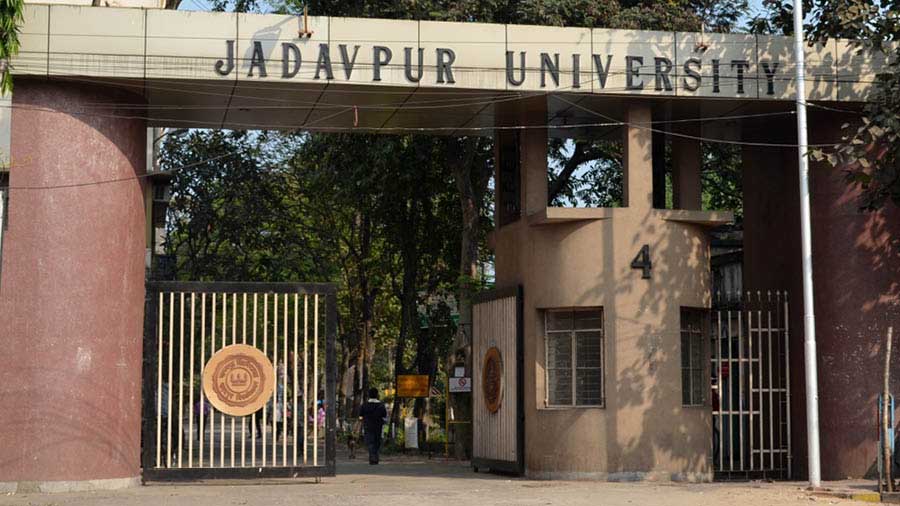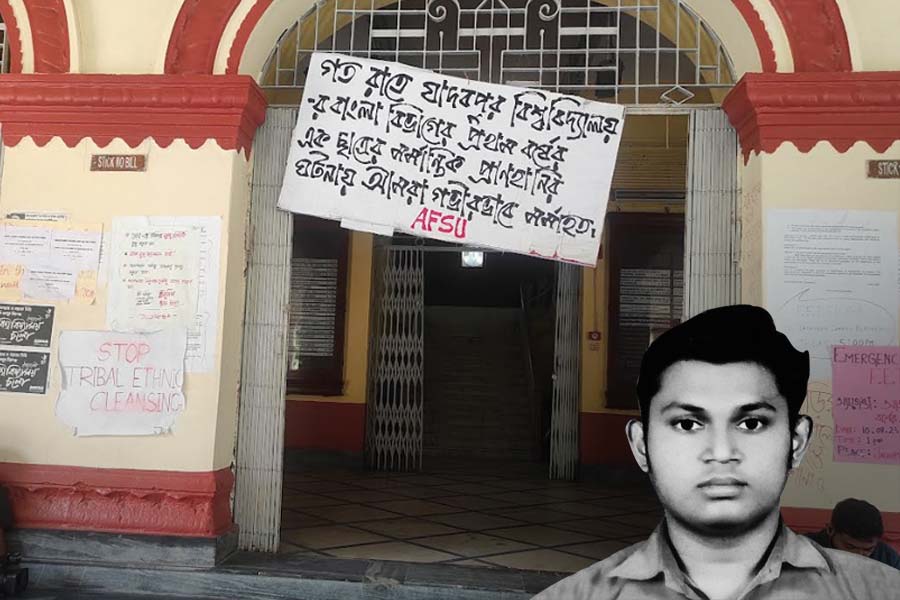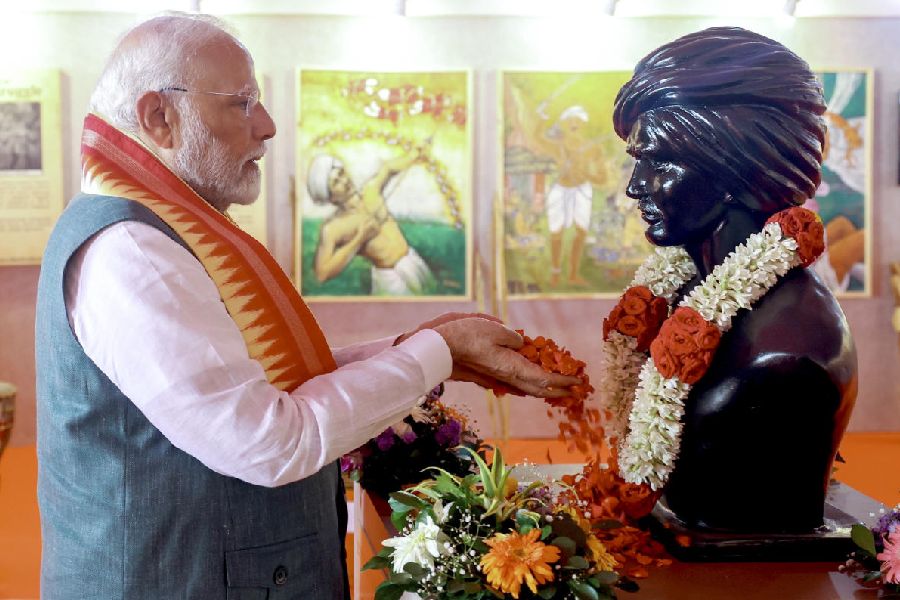Critical anomalies persisting within the current system of room allocation to freshers and poor management of hostels at Jadavpur University seem to have fanned the persisting menace of ragging and physical torture, the latest fallout of which is suspected to have killed a minor.
Authorities at JU have been put in the dock for having long lost control over hostel placements, the reins of which seems to have been snatched away by senior students and former pupils who kept occupying hostel spaces in unauthorized manner.
The authorities are being blamed because the victim, who jumped to his death from the second floor corridor of the university’s main hostel located outside the campus on August 9, had previously moved in as a "guest" in a room of a senior student, under the alleged prodding of an unauthorized past pupil, upon failing to officially secure a hostel berth.
Varsity authorities have already clarified that there’s no provision of staying in hostels as "guests" and the custom, though prevalent for years, is illegal. The
current scenario of hostel facilities at the university’s main campus in Jadavpur sheds more light on the roots of the stated anomalies.
Available accommodation
The university can accommodate 1,876 students in hostels which is less than 16 per cent of the average 12,000 students (including research scholars) who study there at any given point in time. Of the available seats, 1,254 are reserved for boys and 622 are for girls, a university notice available in public domain states.
JU officials confirmed depending on vacancies availablen 150-160 boys and some 80-100 girls from the first year undergraduate level are accommodated in hostels every year. That’s about 13 per cent of the total number of boarders.
While the number of applications for hostel accommodation for female students is nearly five times the number of students who ultimately manage to secure hostel berths, the corresponding figure for male students is nearly four times, university officials stated.
Too few rooms
“JU is not a residential university. Hostel accommodation is provided to students based on the limited facilities we have. Students seeking stay facilities are told right at the beginning that rooms would only be provided to a selected few and the number would depend on the vacancies which open up,” said Dean of students Rajat Ray.
Ray, however, differs with the perception that the seat shortage has encouraged ragging culture with little resistance from freshers who tend to avoid confrontation with seniors for fear of losing their precious berths which, in turn, makes them more vulnerable to the crime. “If that were the case, then more instances of ragging would have surfaced from the girls hostels where seat crunch is higher than the boys,” he asserted.
The women’s hostel is divided into three blocks and UG first year students are divided among all three and cohabit with seniors, officials stated. Their male counterparts are allotted seats at A1 and A2 blocks of the main hostel, which is outside the university’s Jadavpur campus, and also at the in-campus New Block Boys’ Hostel and the New Boys’ Extension, the latter also accommodating physically challenged students, it was learnt.
Freshers put up with seniors
The question that university officials failed to answer satisfactorily was why it continued with the practice of allotting first year students rooms in the main hostel alongside senior boys despite being aware of the prevalent ragging menace. More importantly, why were seniors allowed to reside in the same blocks with freshers? If first year students could hastily be shifted from the main hostel to the in-campus accommodation facility immediately after the tragedy struck, why couldn’t the job of separating freshers from seniors be done right at the beginning?
That's because the university’s job is limited to the process of selection of candidates eligible for hostel accommodation. But their selection of rooms and even which hostel they would be put up in is decided by mess committee members run by senior students, confided an official who did not want to be named. "These senior students are, in turn, mouthpieces of passed out former students who actually call the shots,” he revealed.
The university’s official selection process for hostel boardership states candidates are chosen on the basis of a weighted average of 24 marks, 6 marks of which is allotted for the candidate’s family income, 12 marks for distance from official residence and another 6 marks for the selection interview. The interview, according to the university’s stated rules, is to be conducted by a nine-member committee headed by the dean of students. Only two students are supposed to be part of this committee, a representative of the students union concerned and a hostel superintendent-nominated representative of the hostel concerned.
Students have final say
“In reality, it’s the students who have the final say on who gets accommodation. There’s little that other members, teachers and administration officials, can do here,” the official stated.
Dean of students Ray calls the situation “failure of the university as a whole”.
“Unlike say in the IITs, JU has never imposed strict campus discipline on students or tried to rein them in when gross violations were found. Yes, we have suspended and even rusticated students on occasions but that has never been extended to forming and implementing prohibitive norms on campus. The culture has backfired on us and is now a burden on officials like us whose job is to implement policy decisions of the executive council. There is lawlessness inside the campus and there’s little we can do to stop it,” Ray said when asked what led to the failure of authorities to stamp out unauthorised personnel continuing to occupy hostel seats.
“The anomalies were repeatedly brought to the notice of our previous vice chancellor Prof Suranjan Das and registrar Pradip Kr Ghosh. Committees were formed to look into them and nothing further happened,” Ray alleged, revealing a clear rift among different branches of JU administration.
Further cuts in accommodation
Interestingly, despite the glaring loopholes and the seat crisis in hostels, the dean revealed his plans to further curtail the number of eligible first year students for hostel stay from the current academic year. “As per new UGC norms, the undergraduate level would be a four-year course instead of the earlier three-year system in Arts and Science streams. That means we will have to accommodate students for an extra year and the number of vacancies would go down. As a result we will not be able to accommodate more than 120 new boys this year,” Ray disclosed














